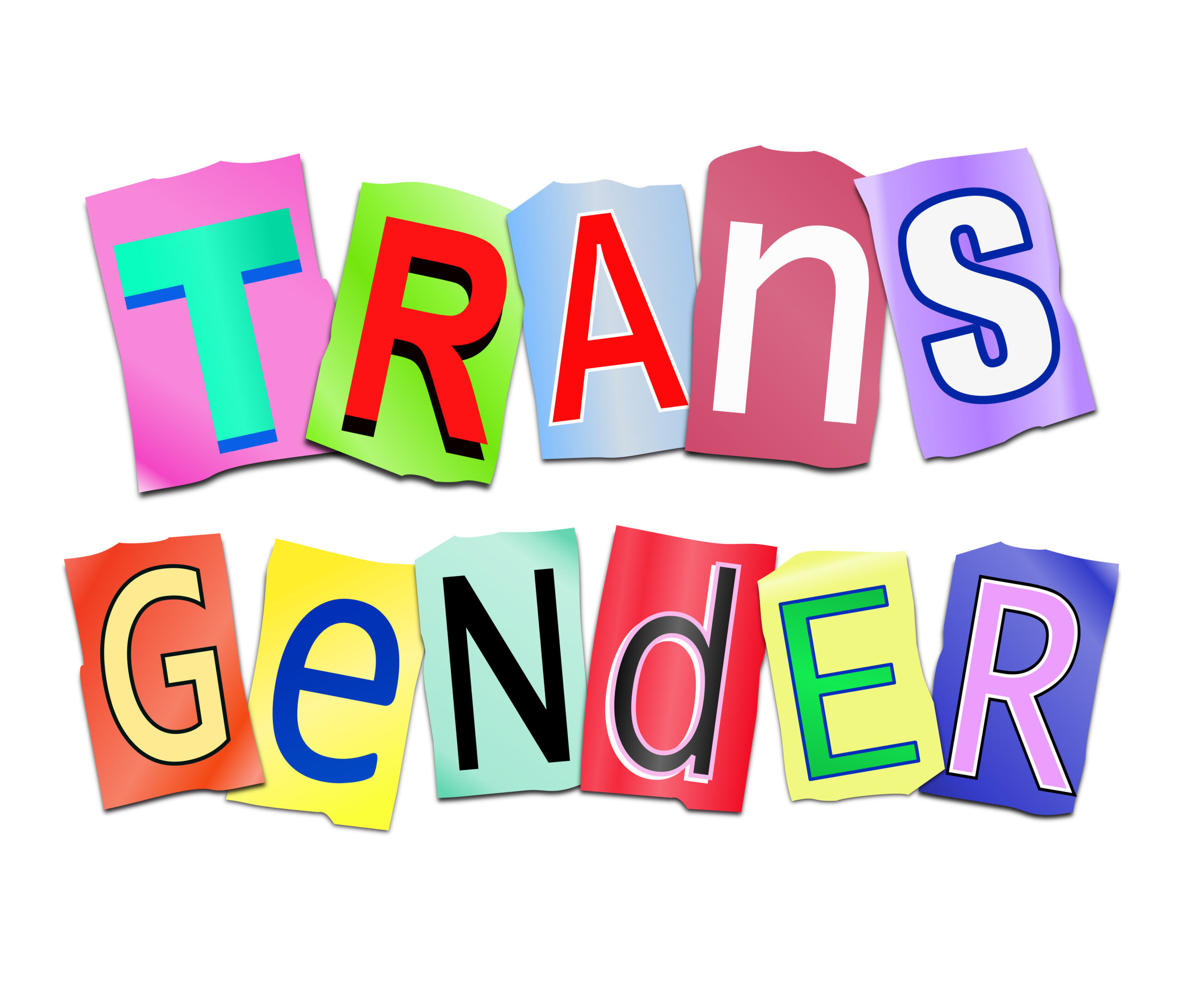
Knowledge Is Power

Thank you for being here. Your presence is a breath of fresh air knowing that you seek to learn more to help make this world a safer place for all people.
I look forward to your questions and comments. You can always message me directly if you have questions you’d prefer to have answered privately.
Namaste,
Dr. Nancy
MAY 2023 UPDATE
As of May 2023, there are several laws in the works in the USA that restrict access to gender-affirming care for transgender minors. At least six states – Alabama, Arkansas, Arizona, Florida, South Dakota, and Utah – have passed laws or policies that restrict gender-affirming care for people under the age of legal majority
According to the Human Rights Campaign, there are over 126 bills filed in 19 states that limit access to gender-affirming health care for minors.
These bills carry severe penalties for health care providers and families who provide or seek out gender-affirming care for minors
Some of these bills criminalize gender-affirming procedures
The bills also limit insurance coverage or payment for gender-affirming services or prohibit the use of state funds for such services
The legal and policy landscape regarding youth access to gender-affirming care is shifting across the country, with an increasing number of states seeking to limit such access and impose penalties.
The laws that restrict access to gender-affirming care for transgender minors are being justified by some legislators as a way to “protect” trans youth.
However, these laws are an assault on the ability of trans youth, along with their parents and healthcare providers, to access medically necessary care.
Some of these laws penalize parents aiding in youth accessing gender-affirming care, permit individuals to file for damages against providers who violate such laws, limit insurance coverage or payment for gender-affirming services, or prohibit the use of state funds for such services.
Bills that limit access to gender-affirming health care for minors include criminal penalties against health professionals and parents who provide or enable access to such care.
These laws are being justified despite the fact that gender-affirming care is considered safe, effective, and medically necessary by major professional health associations, including the American Medical Association, the American Academy of Pediatrics, and the Endocrine Society.
The rationale behind the laws that restrict access to gender-affirming care for transgender minors is that some legislators believe that such care is harmful to minors and that minors are not capable of making decisions about their gender identity
However, major professional health associations, including the American Medical Association, the American Academy of Pediatrics, and the Endocrine Society, consider gender-affirming care to be safe, effective, and medically necessary
Some of these laws are being justified as a way to “protect” trans youth, but in reality, they are an assault on the ability of trans youth, along with their parents and healthcare providers, to access medically necessary care
These laws carry severe penalties for health care providers and families who provide or seek out gender-affirming care for minors
Some of these laws also limit insurance coverage or payment for gender-affirming services or prohibit the use of state funds for such services.
The evidence supports the safety and effectiveness of gender-affirming care for minors. Research has demonstrated that gender-affirming care improves the mental health and overall well-being of gender diverse children and adolescents.
Providing youth with gender-affirming care is clinically sound and the most effective way to alleviate symptoms of gender dysphoria.
Major professional health associations, including the American Medical Association, the American Academy of Pediatrics, and the World Professional Association for Transgender Health, support comprehensive care for transgender and gender-expansive youth and oppose efforts to ban their access to care.
Gender-affirming care is always delivered in age-appropriate, evidence-based ways, and decisions to provide care are made in consultation with the patient, their family, and their healthcare provider.
Gender-affirming care for minors encompasses many facets of healthcare needs and support, and it has been shown to increase positive outcomes for transgender and nonbinary children and adolescents.
Gender-affirming care is patient-centered and treats individuals holistically, taking into account their physical, mental, and social well-being.
Some specific gender-affirming treatments for minors include supporting their social transition, such as changing their name and pronouns, modifying their gender expression by wearing different clothing or altering their style, and providing hormone therapy or puberty blockers.
Hormone therapy and puberty blockers are used to alleviate symptoms of gender dysphoria and help individuals achieve a gender identity that is more congruent with their gender identity.
Gender-affirming care is evidence-based and done in a developmentally appropriate manner, as healthcare providers give patients and families the space to express the youth’s individual gender experience and journey.
The criteria for determining if a minor is a good candidate for gender-affirming care include a diagnosis of gender dysphoria, which is a condition where an individual experiences distress due to a mismatch between their gender identity and their sex assigned at birth.
The diagnosis is made by a qualified healthcare provider, such as a mental health professional or a pediatric endocrinologist.
Gender-affirming care is evidence-based and done in a developmentally appropriate manner, as healthcare providers give patients and families the space to express the youth’s individual gender experience and journey.
Gender-affirming care typically includes steps toward social transition, potentially treatments to temporarily postpone puberty, and in some instances, hormone therapy.
The American Academy of Pediatrics, the Pediatric Endocrine Society, the American Psychological Association, and the American Medical Association support comprehensive care for transgender and gender-expansive youth and oppose efforts to ban their access to care.
Bans on gender-affirming health care for adults are not as common as those for minors, but they do exist in some states. The reasons for these bans vary, but proponents of such bans often argue that gender-affirming health care is not medically necessary or that it goes against their religious or moral beliefs.
However, medical experts and professional associations have consistently affirmed the importance of gender-affirming care for transgender individuals, stating that it is clinically sound and the most effective way to alleviate symptoms of gender dysphoria.
Efforts to limit access to gender-affirming care for adults can have significant negative implications for the health and well-being of transgender individuals, including increased rates of depression, anxiety, and suicide
Additionally, such policies may limit the ability of healthcare providers to provide the best possible care to their patients, which can lead to negative health outcomes.
Denying minors access to gender-affirming care can have significant negative implications for their health and well-being. Gender-affirming care is considered safe, effective, and medically necessary by major professional health associations, including the American Medical Association and the American Academy of Pediatrics.
Access to gender-affirming care has a positive relationship with the mental health of transgender youth and lowers their risk of depression and suicide.
Transgender youth who have access to gender-affirming medical care experience improvements in mental health and quality of life.
Delaying or denying gender-affirming care can lead to increased rates of depression, anxiety, and suicide among transgender youth.
Efforts to limit access to gender-affirming care for minors may also place parents in the position of either supporting their children in accessing care supported by medical evidence and facing penalties or denying their children access in an effort to avoid penalties.
Bans on gender-affirming care for minors can have a significant impact on the relationship between healthcare providers and their patients. Healthcare providers may be hesitant to provide gender-affirming care to minors due to fear of legal repercussions or penalties.
This can create a situation where minors are unable to access the care they need, which can lead to negative health outcomes. Gender-affirming care is considered safe, effective, and medically necessary by major professional health associations, including the American Medical Association and the American Academy of Pediatrics.
Denying minors access to gender-affirming care can lead to increased rates of depression, anxiety, and suicide among transgender youth.
Additionally, healthcare providers may be placed in the position of either supporting their patients in accessing care supported by medical evidence and facing penalties or denying their patients access in an effort to avoid penalties.
This can create a difficult ethical dilemma for healthcare providers and may lead to a breakdown in trust between healthcare providers and their patients.
Getting clear about GENDER.
WHAT IS GENDER?
Gender is a social and cultural construct that refers to the behavioral, cultural, and psychological traits that a society considers appropriate for males and females. It encompasses the social roles, behaviors, expectations, and identities associated with being male or female in a particular culture or society. Gender is distinct from biological sex, which refers to the anatomical and physiological differences between males and females.
CHROMOSOMES and GENDER
Typically, the human chromosomal makeup is divided into two categories: XX, which is female, and XY, which is male. However, there are some variations that can occur, such as XXY or XXX, which are known as sex chromosome aneuploidies. These variations can lead to differences in physical and/or sexual development. It’s important to note that chromosomal makeup does not necessarily determine an individual’s gender identity. Gender is a complex and multifaceted concept that includes factors such as biological, social, cultural, and psychological influences.
GENDER IDENTITY
Gender identity refers to a person’s internal sense of their own gender, which may or may not align with the gender they were assigned at birth based on their biological sex. In other words, it is a person’s subjective experience of their own gender, which may be different from the gender typically associated with their physical characteristics.
Gender identity is often described as a spectrum, with male and female at either end and a range of other gender identities in between, such as nonbinary, genderqueer, and gender-fluid. Some people may also identify as transgender, meaning that their gender identity differs from the sex they were assigned at birth.
It is important to note that gender identity is different from sexual orientation, which refers to a person’s emotional, romantic, or sexual attraction to others. While they are often related, they are distinct aspects of a person’s identity.
Respecting a person’s gender identity is crucial to creating a more inclusive and equitable society, as it allows people to express themselves authentically and live without fear of discrimination or violence.
A note from Colstyn R. Edwards, LMFT
“A lot of folks think that transition has a beginning and an ultimate “end.” I hear from trans folx that I work with that people have said to them that they are “not really trans if they don’t have bottom surgery.” UGH! Like they’ve left something unfinished. . . what people don’t understand is that with a Gender Dysphoria diagnosis. . . social transitions, therapy, puberty blockers, hormone treatment, and surgeries are examples of TREATMENT for the dysphoria. Surgeries are neither ELECTIVE nor body mutilation.”

Let's go deeper...
While the term “transgender” is relatively new, the concept of people experiencing gender incongruence or gender dysphoria (feeling a mismatch between one’s gender identity and the sex they were assigned at birth) has been documented throughout history and across cultures.
For example, some Indigenous cultures recognized and accepted people who identified as a third gender or as a combination of male and female. In ancient Rome, there were individuals who were castrated to live as women, and in South Asian cultures, hijras are considered to be a distinct gender category.
However, it is important to note that the experiences of transgender individuals have varied widely throughout history and across different societies, and acceptance and understanding of gender diversity have often been limited. It is only in recent decades that the transgender community has gained greater visibility and recognition, as well as legal protections against discrimination and violence.
Studies have found that the brains of transgender individuals can differ in structure and activity from those of cisgender individuals. For example, some research suggests that the brains of transgender individuals may resemble those of the gender they identify as, rather than the sex they were assigned at birth. However, it’s important to note that these differences are not fully understood and that more research is needed to fully understand the brain and its relationship to gender identity. Additionally, it’s important to respect and support the lived experiences of transgender individuals, regardless of the current state of scientific knowledge.
Standards of Care for the Health of Transgender and Gender Diverse People, Version 8
In the political arena in the USA, there are many misconceptions surrounding gender, including the belief that gender is binary and fixed at birth, and that individuals must conform to traditional gender roles and norms. This can lead to discrimination and marginalization of individuals who do not conform to these expectations, including transgender and gender non-conforming individuals. Additionally, there are debates over whether gender identity should be protected under anti-discrimination laws, and whether transgender individuals should be allowed to use the restroom or participate in sports that align with their gender identity. These debates reflect a lack of understanding and awareness about the complexities of gender and the experiences of transgender individuals.
Here are some references on the misconceptions surrounding gender in the political arena in the USA:
- “Gender and the 2016 Election: Understanding the Trump Effect” by Kelly Dittmar, Kira Sanbonmatsu, and Susan J. Carroll, Political Science & Politics, Volume 50, Issue 3, July 2017, pp. 696-701.
- “Gender Politics in the 2020 Democratic Presidential Primary” by Kelly Dittmar and Rachel VanSickle-Ward, Political Science & Politics, Volume 53, Issue 4, October 2020, pp. 649-654.
- “The Gendered Dynamics of the 2020 Presidential Election” by Rachel VanSickle-Ward, Kelly Dittmar, and Kira Sanbonmatsu, Political Science & Politics, Volume 54, Issue 1, January 2021, pp. 5-9.
- “Transgender Political Participation: The Role of Gender Identity in Political Attitudes and Behaviors” by Jami K. Taylor and Donald P. Haider-Markel, Political Research Quarterly, Volume 74, Issue 1, March 2021, pp. 62-77.
- “Gender, Race, and Political Ambition: How Intersectionality Shapes Who Runs for Office” by Kira Sanbonmatsu, Political Research Quarterly, Volume 71, Issue 2, June 2018, pp. 319-330.
Medical Treatment with Pre-puberty blockers, also known as puberty blockers or GnRH analogues, are medications that temporarily pause the onset of puberty. For transgender youth, these medications can delay the development of secondary sex characteristics, such as breast development or facial hair growth, and provide them with more time to explore their gender identity before irreversible physical changes occur.
Studies have shown that puberty blockers are safe and effective for transgender youth and can alleviate gender dysphoria, improve mental health outcomes, and improve overall quality of life. However, it is important to note that there is limited research on the long-term effects of puberty blockers, and further studies are needed to assess their long-term safety and efficacy. Additionally, it is important for individuals to have access to comprehensive gender-affirming care, including mental health support, to ensure that they can make informed decisions about their transition.
- Coleman, E., Bockting, W., Botzer, M., Cohen-Kettenis, P., DeCuypere, G., Feldman, J., … & Zucker, K. (2012). Standards of care for the health of transsexual, transgender, and gender-nonconforming people, Version 7. International Journal of Transgenderism, 13(4), 165-232.
- De Cuypere, G., T’Sjoen, G., Beerten, R., Selvaggi, G., De Sutter, P., Hoebeke, P., & Monstrey, S. (2005). Sexual and physical health after sex reassignment surgery. Archives of Sexual Behavior, 34(6), 679-690.
- Murad, M. H., Elamin, M. B., Garcia, M. Z., Mullan, R. J., Murad, A., Erwin, P. J., & Montori, V. M. (2010). Hormonal therapy and sex reassignment: a systematic review and meta-analysis of quality of life and psychosocial outcomes. Clinical Endocrinology, 72(2), 214-231.
- Seal, L. J., Franklin, S., Richards, C., & Shishkareva, A. (2021). Long-term follow-up of young people accessing gender identity services. Endocrine Connections, 10(2), 104-114.
- https://www.tandfonline.com/doi/pdf/10.1080/26895269.2022.2100644
- https://www.wpath.org/
Studies have shown that very few people who have undergone gender transition regret their decision or desire to de-transition to their assigned gender. A review of over 100 international studies found that the average regret rate for gender confirmation surgeries was less than 1%.
It is important to note that some people who undergo gender transition may experience challenges or changes in their gender identity over time, and this does not necessarily indicate regret or a desire to transition back. In some cases, individuals may also feel pressure from societal stigma or discrimination, which can impact their decision-making and feelings about their transition.
It is difficult to provide an exact frequency of how often the results of transgender studies showing low rates of regret are cited on social media, as it can vary depending on the platform, user demographics, and other factors. However, it is not uncommon to see such studies and statistics referenced in discussions around transgender rights and healthcare, particularly in response to claims made by those opposed to transgender rights or advocating for restrictive policies. Overall, there is growing recognition within the medical and scientific communities that gender-affirming healthcare, including puberty blockers and hormone therapy, can be safe and effective for many transgender individuals.
Studies have found that the brains of transgender individuals can differ in structure and activity from those of cisgender individuals. For example, some research suggests that the brains of transgender individuals may resemble those of the gender they identify as, rather than the sex they were assigned at birth. However, it’s important to note that these differences are not fully understood and that more research is needed to fully understand the brain and its relationship to gender identity. Additionally, it’s important to respect and support the lived experiences of transgender individuals, regardless of the current state of scientific knowledge.
It’s difficult to give a specific answer as there is limited data available on the exact percentage of transgender individuals who undergo both “top” (i.e., breast augmentation or removal) and “bottom” (i.e., genital reconstruction or removal) surgeries.
However, according to a 2015 survey by the National Center for Transgender Equality, only 11% of transgender respondents had undergone bottom surgery. Another study published in 2017 found that approximately 33% of transgender women had undergone breast augmentation, while about 6% of transgender men had undergone breast removal surgery.
It’s important to note that not all transgender individuals desire or have access to gender-affirming surgeries, and their decision to have or not have surgery does not affect their gender identity.
The percentage of transgender people who have undergone full top and bottom surgery varies depending on the population studied and the location. I can provide you with some studies and data that explore the prevalence of gender-affirming surgery among transgender individuals:
A study published in the Journal of Sexual Medicine found that among a sample of 2,679 transgender individuals, 49.7% had undergone chest surgery (breast augmentation or mastectomy) and 21.8% had undergone genital surgery.
A report from the American Society of Plastic Surgeons found that in 2019, there were 3,526 gender confirmation surgeries performed in the United States, including both “top” (chest) and “bottom” (genital) surgeries.
A survey conducted by the National Center for Transgender Equality in the United States found that among respondents who identified as transgender men, 33% had undergone chest surgery and 8% had undergone genital surgery. Among respondents who identified as transgender women, 14% had undergone chest surgery and 10% had undergone genital surgery.
A study published in the journal Transgender Health found that among a sample of 274 transgender women in Mexico, 11.3% had undergone breast augmentation surgery and 20.8% had undergone genital surgery.
References:
- https://www.jsm.jsexmed.org/article/S1743-6095(16)30022-8/fulltext
- https://www.plasticsurgery.org/documents/News/Statistics/2019/plastic-surgery-statistics-full-report-2019.pdf
- https://transequality.org/sites/default/files/docs/usts/USTS-Full-Report-Dec17.pdf
- https://www.liebertpub.com/doi/full/10.1089/trgh.2019.0051
The push to make gender-affirming healthcare illegal in the USA may stem from a variety of reasons, including opposition to LGBTQ+ rights and a belief that gender identity can be changed through therapy or other means. Some opponents of gender-affirming healthcare may view it as a threat to traditional gender roles and societal norms. Others may view it as a waste of medical resources or an infringement on religious beliefs. However, it is important to note that gender-affirming healthcare is widely recognized as a necessary and life-saving treatment for transgender individuals, and efforts to restrict or prohibit access to this care can have significant negative consequences on their mental and physical health.
There are several ways to inform lawmakers about the dangers of outlawing gender affirming health care:
Contacting their office: You can call, email, or send a letter to your representative or senator expressing your concerns and providing them with information about the importance of gender affirming health care.
Meeting with lawmakers: If possible, you can schedule a meeting with your representative or senator to discuss the issue in person. You can bring along experts or individuals who have firsthand experience with gender affirming health care to provide testimony.
Testifying at hearings: If there are public hearings on the issue, you can sign up to testify and share your thoughts on the importance of gender affirming health care.
Petitions and advocacy campaigns: You can also join or start a petition or advocacy campaign to raise awareness and put pressure on lawmakers to support gender affirming health care.
It’s important to remember to be respectful and factual when communicating with lawmakers. Providing them with data and personal stories can help them understand the impact of their decisions on real people’s lives.
Contact: https://www.hrc.org/
Learn More: https://www.hrc.org/resources/trans-justice-initiative
Outlawing gender affirming health care could have significant negative consequences for transgender individuals. Without access to medical care such as hormone replacement therapy and gender-affirming surgeries, transgender individuals may experience increased dysphoria, depression, and anxiety. They may also face increased stigma, discrimination, and violence. Additionally, outlawing gender-affirming care could infringe on the rights of individuals to make medical decisions for themselves, particularly when it comes to their gender identity.
Here are some sources regarding the potential consequences of outlawing gender affirming health care:
American Academy of Pediatrics. (2021). Policy statement: Ensuring comprehensive care and support for transgender and gender-diverse children and adolescents. Pediatrics, 147(5), e2021028966. https://pediatrics.aappublications.org/content/147/5/e2021028966
National Center for Transgender Equality. (2021). The harms of conversion therapy. https://transequality.org/issues/conversion-therapy
Human Rights Campaign. (2021). The dangers of conversion therapy. https://www.hrc.org/resources/the-dangers-of-conversion-therapy
https://give.hrc.org/page/125646/donate/1?ea.tracking.id=dr_don_mr_searchFY24
Studies have shown that transgender people who have undergone gender-affirming medical interventions report higher levels of life satisfaction and improved mental health. A systematic review of 25 studies found that after gender-affirming surgeries, most transgender people experienced improved quality of life, decreased gender dysphoria, and improved mental health outcomes such as reduced anxiety and depression.
Here are some valued sources:
- Gorin-Lazard, A., Baumstarck, K., Boyer, L., Maquigneau, A., Penochet, J.-C., Pringuey, D., Albarel, F., Loundou, A., & Auquier, P. (2019). Hormonal therapy is associated with better self-esteem, mood, and quality of life in transsexuals. The Journal of Nervous and Mental Disease, 207(9), 782–788. https://doi.org/10.1097/NMD.0000000000001037
- Murad, M. H., Elamin, M. B., Garcia, M. Z., Mullan, R. J., Murad, A., Erwin, P. J., & Montori, V. M. (2010). Hormonal therapy and sex reassignment: A systematic review and meta-analysis of quality of life and psychosocial outcomes. Clinical Endocrinology, 72(2), 214–231. https://doi.org/10.1111/j.1365-2265.2009.03625.x
- Wiepjes, C. M., Nota, N. M., de Blok, C. J. M., Klaver, M., de Vries, A. L. C., Wensing-Kruger, S. A., de Jongh, R. T., Bouman, M.-B., Steensma, T. D., & Cohen-Kettenis, P. T. (2018). The Amsterdam Cohort of Gender Dysphoria Study (1972–2015): Trends in prevalence, treatment, and regrets. The Journal of Sexual Medicine, 15(4), 582–590. https://doi.org/10.1016/j.jsxm.2018.02.001
- https://www.tandfonline.com/doi/pdf/10.1080/26895269.2022.2100644
- https://www.wpath.org/
- https://www.hrc.org/
UPDATE MAY 15, 2023
Florida’s vile discrimination laws are creating a humanitarian backlash! This will not bode well for the GOP OR GQP.
According to the latest data this year from PRRI, support for LGBTQ+ rights is on the rise in Florida and nationwide: 80% of Florida residents support nondiscrimination protections, and 66% of Florida residents oppose refusal of service on religious grounds. About eight in ten Americans (80%) favor laws that would protect LGBTQ+ people against discrimination in jobs, public accommodations, and housing. This reflects a dramatic increase in the proportion of Americans who support nondiscrimination protections since 2015, when it was 71%.
What happened to the hippocratic oath? The primary tenet, and one of the promises within that oath is, “first, do no harm”.
The anti-(LGBTQ+, women’s rights, children’s rights, equal rights, POC rights, Voting rights) movement is a sickenly desperate move by the GOP to gain power when they have zero plan to improve the country for all Americans – they seek only to solidify the cis-gender, christian-nationalist, white male supremacy status. A status based on falsehoods dating back centuries that are currently being overwhelmingly proven to be just that… falsehoods of superiority.
“If you deny care to an individual, not because of your own qualifications, confidence in your abilities, known, proven, or sanctioned practices by scientific or licensing bodies, but because of your personal beliefs, you are inflicting harm.” Dr. Nancy Sutton Pierce

Dr. Nancy Sutton Pierce is a certified Clinical Sexologist, Relationship Expert & International Speaker who has dedicated her career to educating and empowering individuals and couples to create more fulfilling relationships and sexual experiences sans guilt and shame from a lifetime of dogma.
A clinical sexologist is a professional who specializes in the study of human sexuality and sexual health, and who provides therapy and counseling services to individuals and couples experiencing sexual issues or concerns.
Clinical sexologists are trained to address a wide range of sexual issues, including sexual dysfunction, sexual trauma, relationship problems, gender identity issues, and concerns related to sexual orientation, among others. They may work in private practice, hospitals, clinics, or other healthcare settings, and often work collaboratively with other healthcare providers, such as physicians, psychologists, and social workers.
Clinical sexologists typically hold advanced degrees in fields such as human sexuality, psychology, or counseling, and may be licensed or certified by professional organizations such as the American Association of Sexuality Educators, Counselors and Therapists (AASECT) or the World Association for Sexual Health (WAS). They are trained to provide non-judgmental, compassionate care to individuals and couples seeking support for their sexual health and well-being
The term “dogma” generally refers to a set of beliefs or principles that are held as true and unquestionable by a particular group or organization, typically related to religion or ideology.
Dogma can be characterized by strict adherence to a particular doctrine or set of principles, often without any room for questioning or dissent. It can be used to justify beliefs or actions that might otherwise be questioned or criticized.





Add A Comment